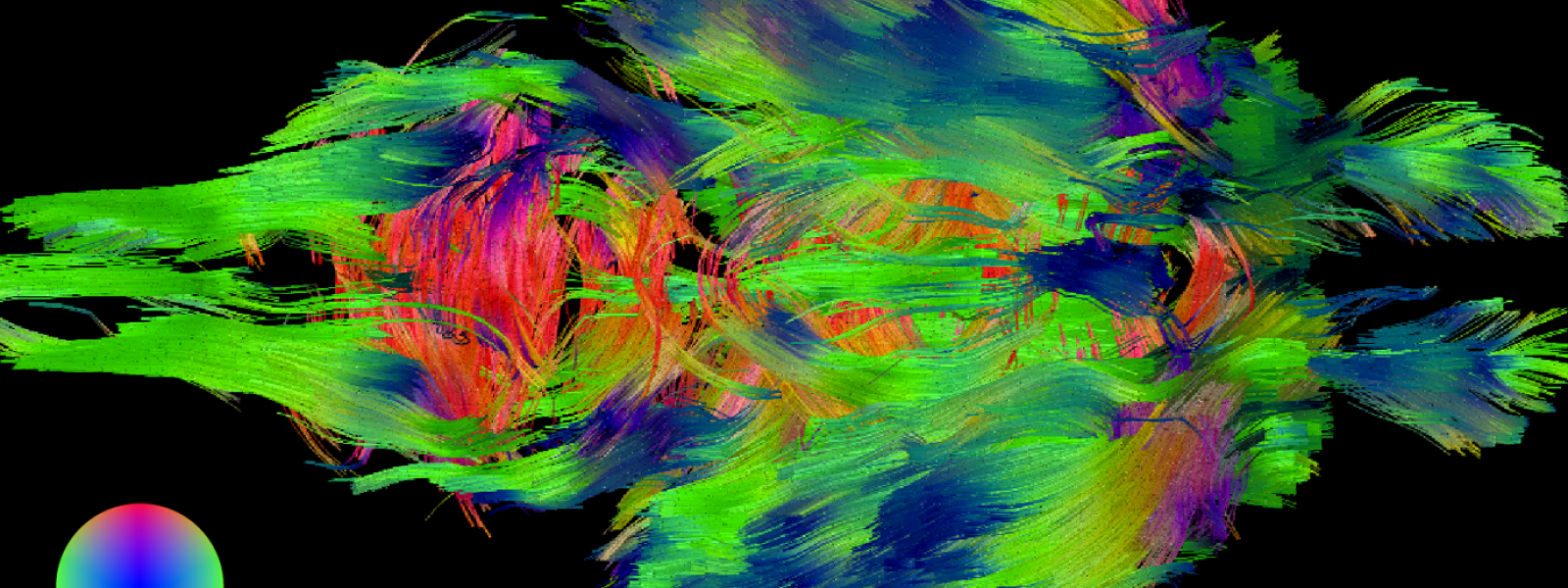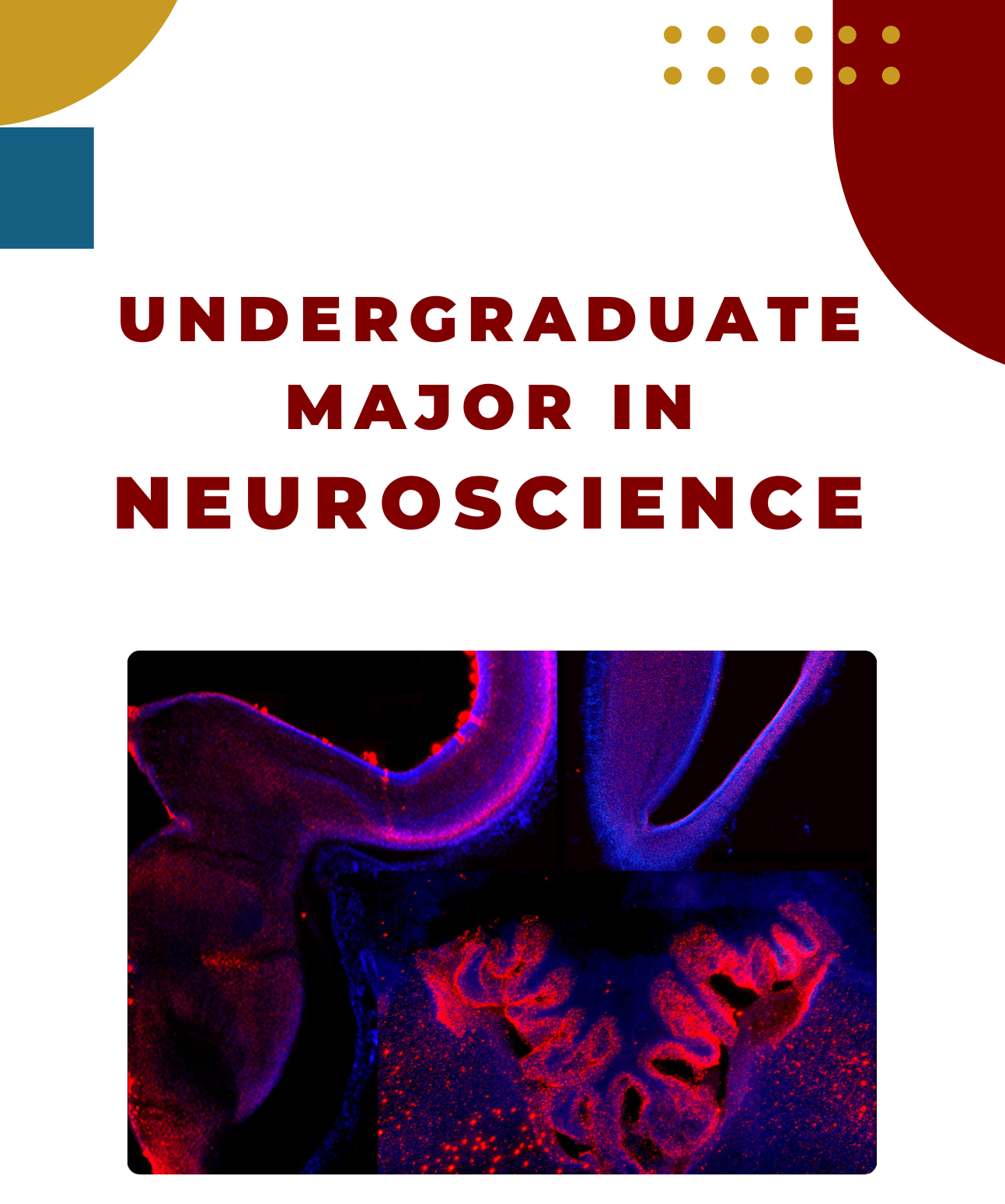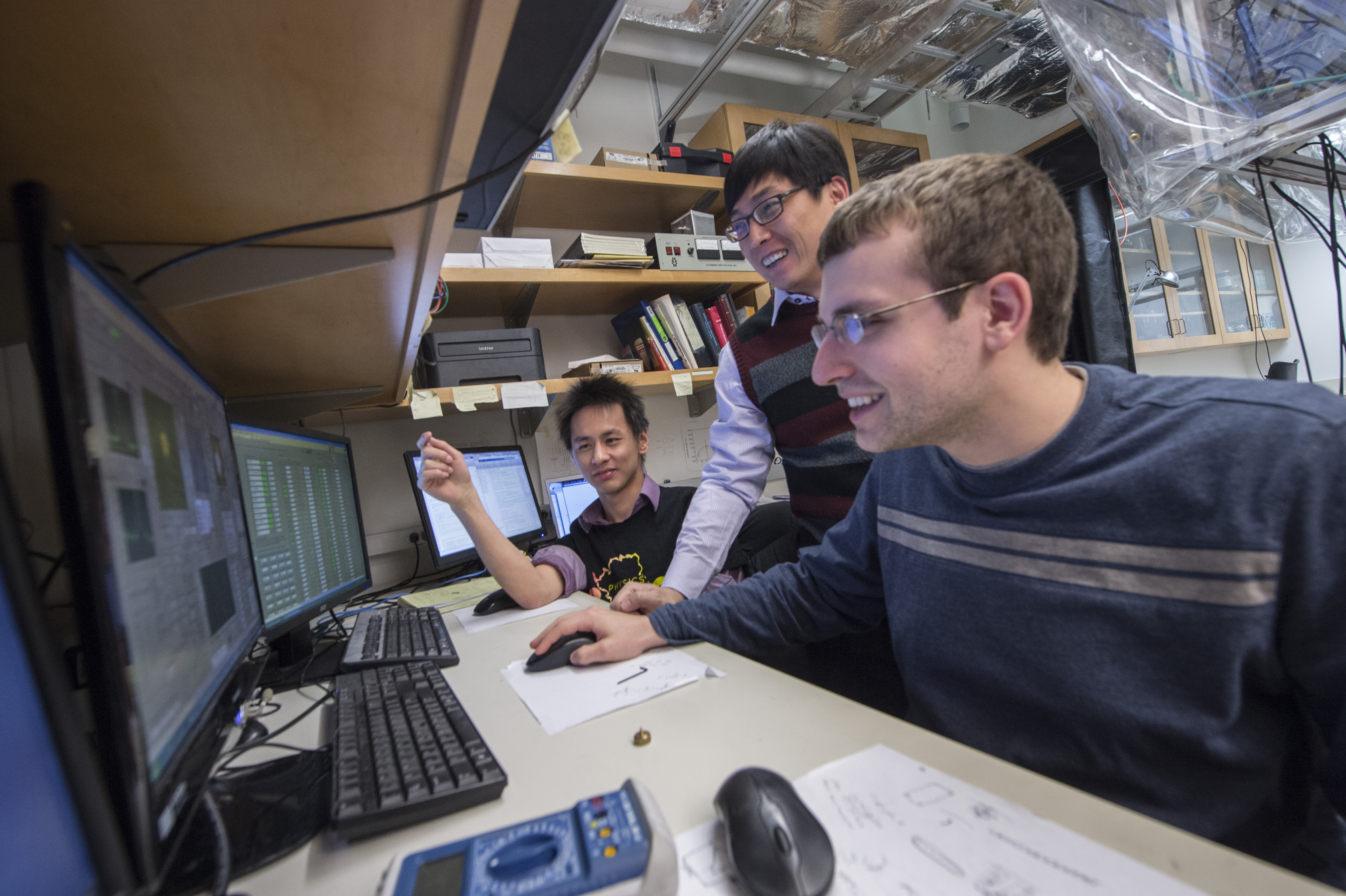Neuroscience is the multidisciplinary study of nervous systems.
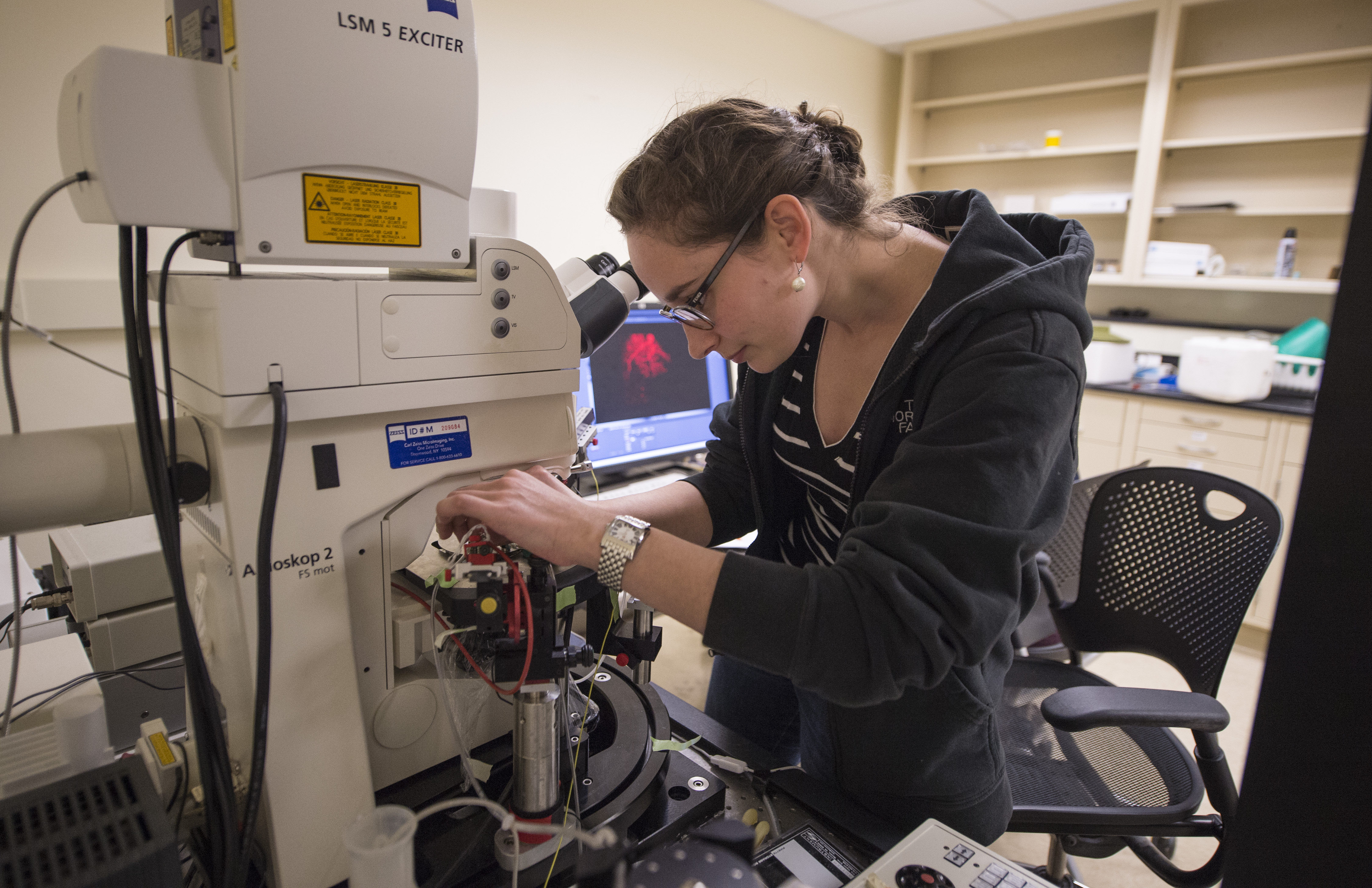
The sheer scope of neuroscience necessitates numerous scientific approaches to achieve an understanding of sensation, perception, cognition, and behavior. Consequently, students in the major are provided with access to a wealth of scientific variety including biology, psychology, physics, chemistry, computer science, engineering, mathematics, statistics, and medicine.
Neuroscience faculty at the University of Chicago have expertise in all of these areas and are distributed across the Biological Sciences, Social Sciences, and Physical Sciences Divisions.
The course of study in the undergraduate major in neuroscience (NSCI) provides students with the background and skills appropriate to pursue a diverse set of careers. These include established neuroscience career paths in academia, medicine, and the pharmaceutical industry as well as new emerging careers in economics, machine learning, and analytics, to name but a few.
PROGRAM OF STUDY
Neuroscience is concerned with the function of nervous systems. The Bachelor of Arts (BA), Bachelor of Science (BS), and Bachelor of Science with Honors (BSH) degrees in neuroscience provide a broad foundation in understanding neural function from the perspective of molecules, cells, circuits, systems, organisms, and species.
The Neuroscience department splits the major between the Bachelor of Arts and Bachelor of Science degrees, with an Honors program available to BS students. The BA degree offers a thorough study in the field of neuroscience and provides flexibility in elective choices. The BS degree offers a more intensive program of study that includes individual research.
Students who wish to incorporate neuroscientific literacy into their degree but have a primary interest in other fields can choose to obtain a Minor in Neuroscience.
Students who are majoring in biological sciences and are interested in mathematical approaches, or students who are majoring in the physical sciences and are interested in neuroscience can choose to obtain a Minor in Computational Neuroscience.
Program Requirements
Bachelor of arts
Core Classes – Courses approved by the major and required courses
Electives – List of approved Neuroscience electives
Find more detailed information in the BA section in the College Catalog
Bachelor of science
Receiving the BS degree requires:
1. A total of 10 electives
2. Approval by the major of a proposed research project
3. Enrollment, as an elective, into 1-3 quarters of experimental or scholarly research with a Neuroscience faculty member
4. A passing written thesis and poster presentation
Find more detailed information on the Bachelor of Science page
Honors program
Receiving the BS with honors degree requires:
1. Admittance to the honors program
2. A GPA of 3.5 in the major, 3.25 cumulative
3. Enrollment, as an elective, into 3 quarters of experimental or scholarly research with a Neuroscience faculty member. The program additionally requires full-time research during the summer between the third and fourth year
4. A passing written thesis and a public talk organized by the NSCI administration
Find more detailed information on the Bachelor of Science with Honors page
Visit the College Course Catalog for MORE information on all programs.
If you need assistance with planning your bachelor's program, don't hesitate to reach out to our advisors. They will provide guidance and support to ensure you have a successful academic journey.
NSCI Paid Teaching Assistant Opportunities
Neuroscience undergraduates that exhibit exceptional comprehension in their courses are
encouraged to apply for an NSCI Paid Teaching Assistant Opportunity.
NSCI undergraduate TAships require successful completion of the course.
Upcoming Neuroscience courses to TA include:
NEUROSCIENCE FUNDAMENTAL COURSES
NSCI 20100 - Neuroscience Laboratory, Winter Quarter
NSCI 20101 - Foundations of Neuroscience, Autumn Quarter
NSCI 20111 - Cellular Neurophysiology, Winter Quarter
NSCI 20130 - Systems Neuroscience, Spring Quarter
BIOS NEUROSCIENCE COURSES
BIOS 10140 - Inquiry-based exploration of biology
BIOS 14112 - Workings of the human brain: From brain to behavior
BIOS 14118 - Mechanisms of Memory: How the brain stores information
NSCI UNDERGRADUATE ELECTIVES
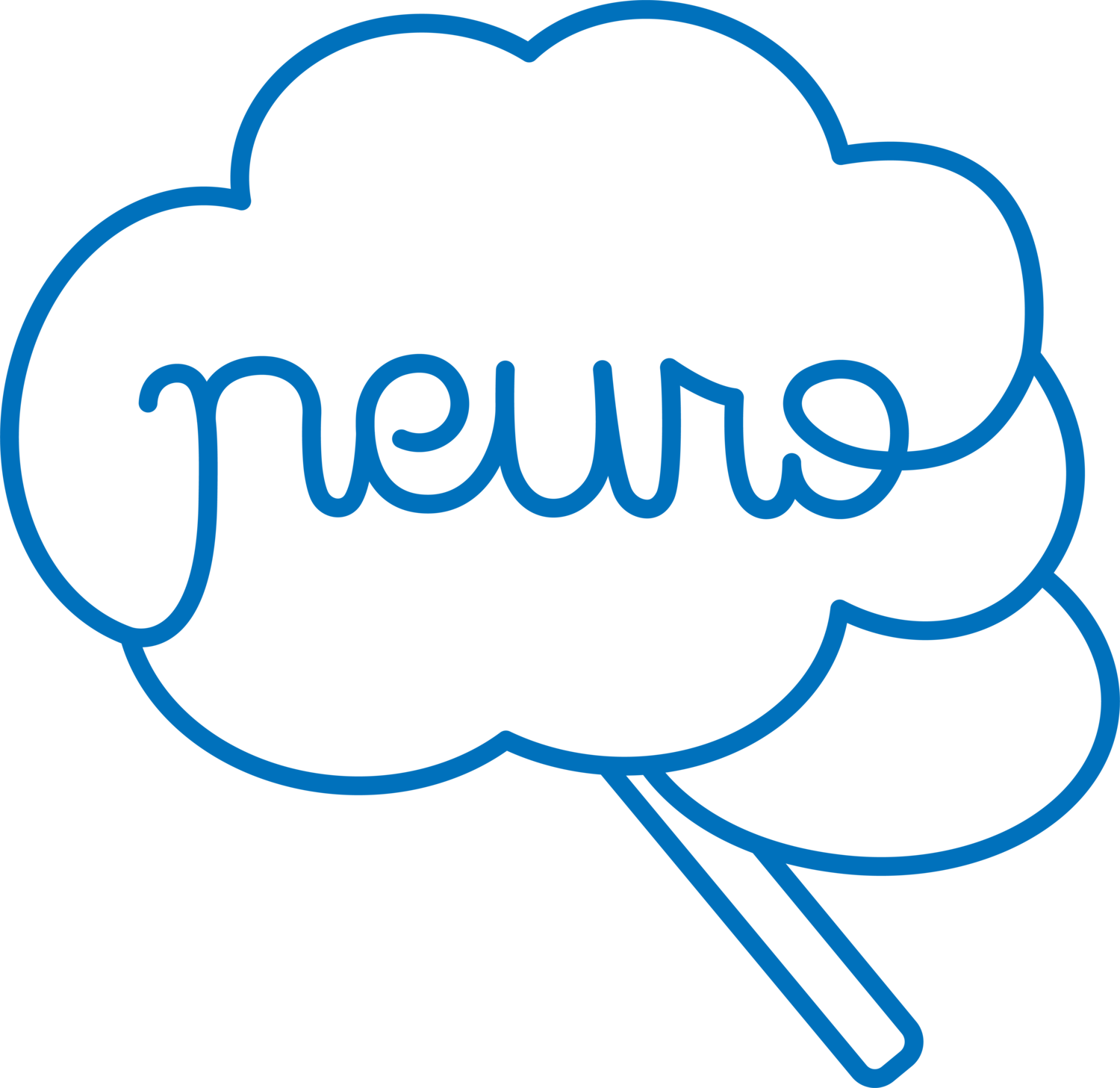 The Neuroscience Education, Undergraduate Research & Outreach (NEURO) Club is a Registered Student Organization centered around those interested in the field of Neuroscience and educating the on-campus and surrounding community about Neuroscience.
The Neuroscience Education, Undergraduate Research & Outreach (NEURO) Club is a Registered Student Organization centered around those interested in the field of Neuroscience and educating the on-campus and surrounding community about Neuroscience.
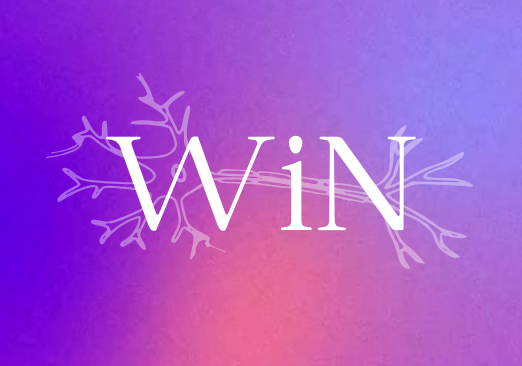 Women in Neuroscience (WiN) is a club that works to promote female and non-binary people’s achievements in academic and professional settings and establish a community of neuroscience, psychology, and cognitive science majors in the College.
Women in Neuroscience (WiN) is a club that works to promote female and non-binary people’s achievements in academic and professional settings and establish a community of neuroscience, psychology, and cognitive science majors in the College.
It is a broad and engaging program that prepares students well for research endeavors. I appreciated the broad selection of electives that let me specialize in what I was interested in. I felt supported by the staff and the professors, it is a really great community!
CONTACT US
You can reach us by emailing
neuromajor@uchicago.edu
